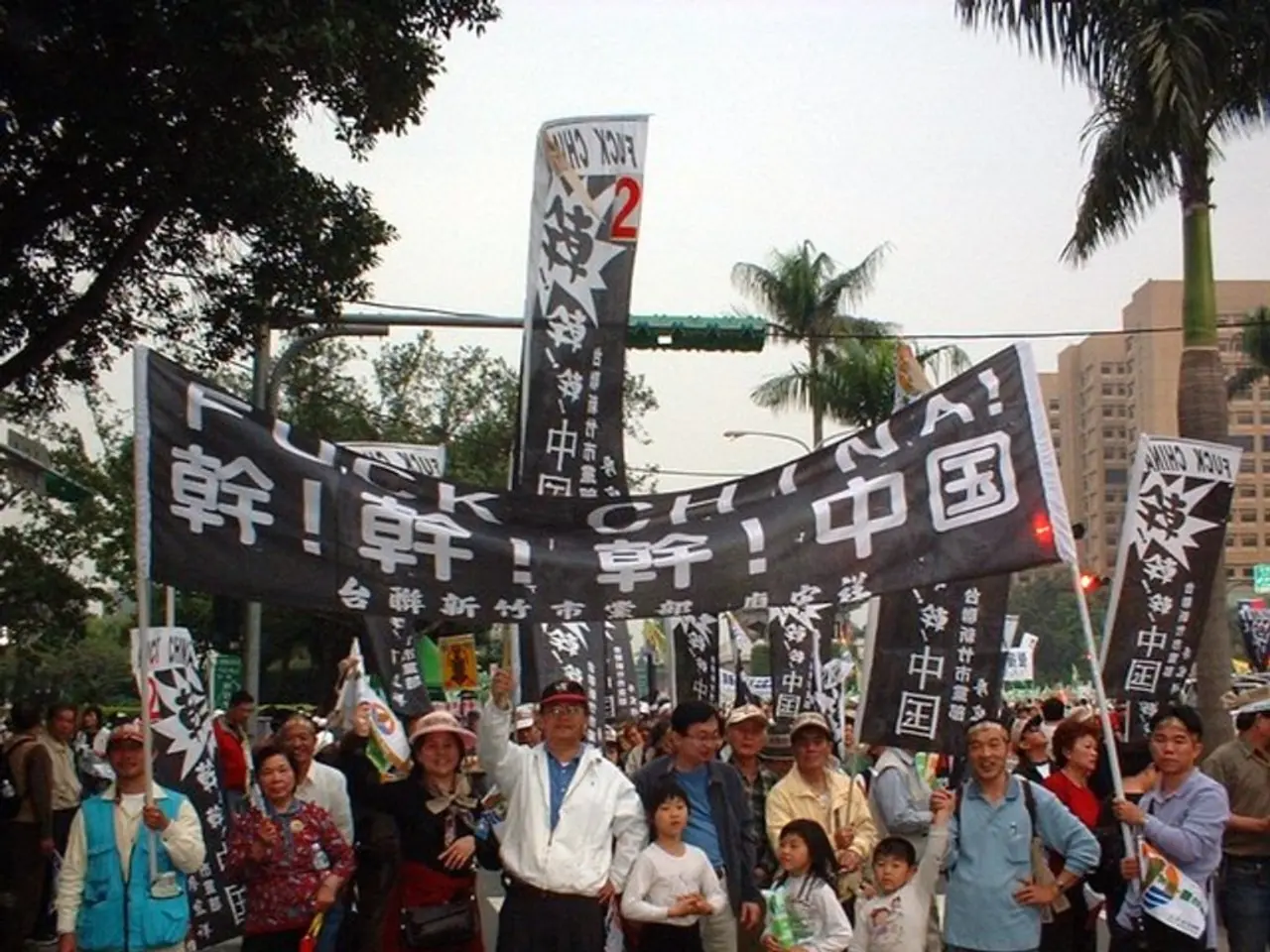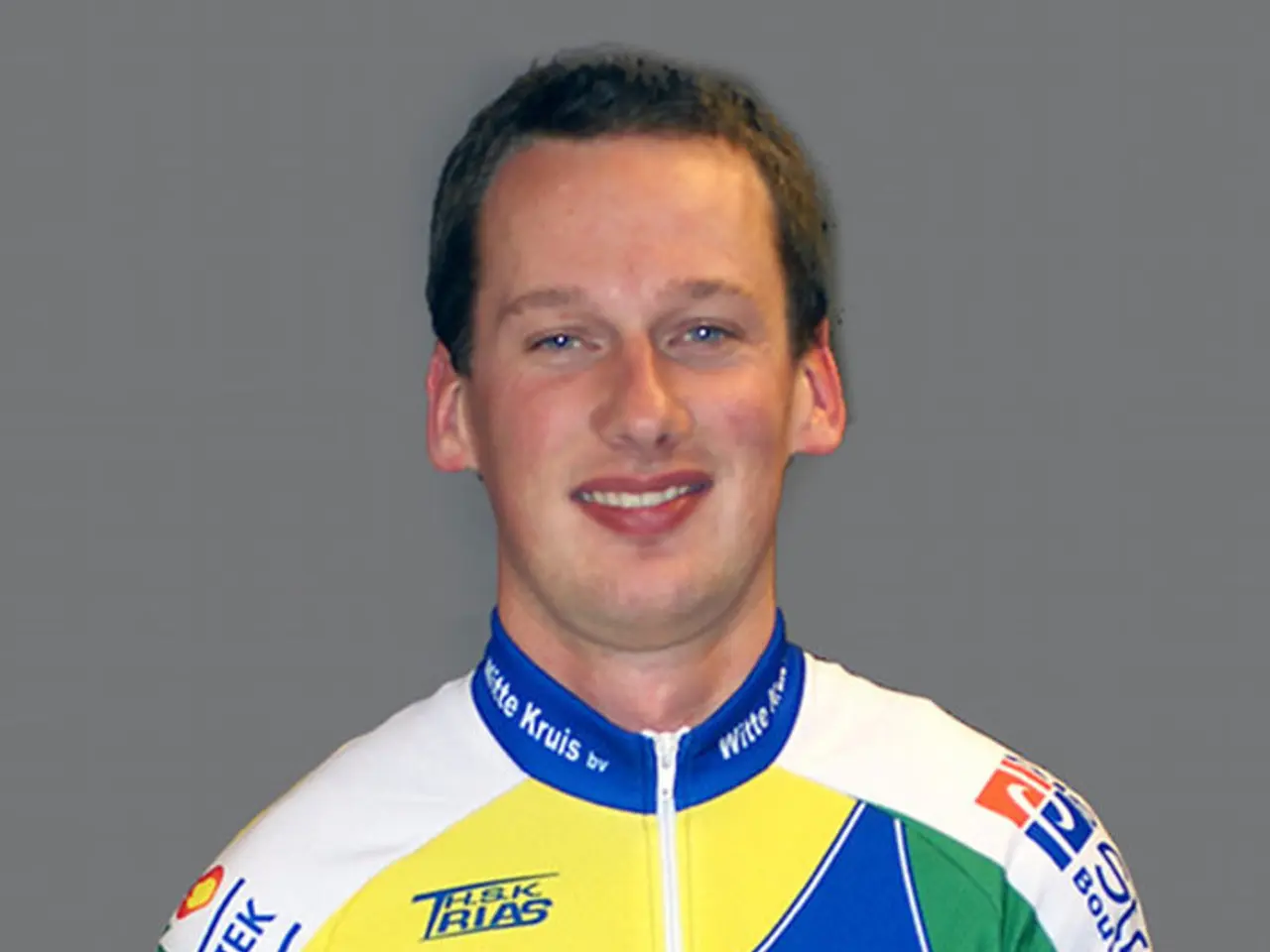Scholz and Esken Applauded at SPD's Berlin Conference - Economic Policies, Leadership Changes, and International Tensions
- *
SPD Party Convention Honors Scholz and Esken - Economic and Work-related Decisions Made - Socialist Faction Celebrates Scholz and Esken's Economic and Employment Policies
After a tumultuous period, the SPD gathered in Berlin for their annual conference, focusing on the party's economic policies, leadership changes, and international tensions.
Scholz, in an impassioned speech, urged the party to remain steadfast in their support for the vulnerable and needy, stating, "Let's not make the 'question of respect' for those seeking aid a fleeting concern." He expressed relief that the accomplishments of his administration—like the reform of self-determination and citizenship rights—were not dismantled by the current government.
Scholz candidly admitted the coalition breakdown with the FDP over the budget, stating, "We would have liked to continue." He remained enthusiastic about engaging in discussions on improving electoral results, saying, "I'm eager to contribute effectively to the conversation."
Speaker Esken, stepping down after six years at the helm, called for renewal as she left. "I depart not with sorrow but gratitude," she said. Emphasizing the SPD's history of reinventing itself, she acknowledged the party's recent defeat as a significant, "bitter” setback. Scholz and Esken received heartfelt gifts during the conference.
Esken's departure paved the way for Bärbel Bas and Lars Klingbeil to take the top duo positions, with Bas receiving a landslide 95 percent of votes over Klingbeil's 64.9 percent. Further elections resulted in Katarina Barley being confirmed as EU representative, Dietmar Nietan as treasurer, and notable wins for Boris Pistorius, Andreas Bovenschulte, and Sabine Bätzing-Lichtenthäler. Tim Klüssendorf was also confirmed as the new general secretary, with the deputy party chairmen also being elected.
The conference highlighted the party's commitment to a green transformation of the economy through investing in green steel and electromobility, ramping up the hydrogen economy, and pushing for a steel summit with German companies facing this transformation.
Labor market policy discussions sparked disagreements over the abandonment of the eight-hour day in favor of a weekly maximum working time, as well as concerns that the minimum wage remained below the intended 15 euros, with seasonal workers receiving special consideration. Matthias Miersch, the SPD faction leader, encouraged support for the government's social democratic work, acknowledging both painful compromises and important successes.
International relations featured prominently during the conference, with guest speaker Özgür Özel, chairman of the Turkish SPD sister party CHP, raising concerns over the threat to democracy in Turkey due to Erdoğan's repressive government. The conference unanimously demanded the release of imprisoned Turkish opposition leader Ekrem İmamoğlu, emphasizing global solidarity for democrats facing oppression.
- Olaf Scholz
- Saskia Esken
- SPD
- Berlin
- Lars Klingbeil
- Bärbel Bas
- Traffic Light Coalition
- FDP
- Election Defeat
- International Relations and Foreign Policy
Insights:
- The SPD convened in Berlin for their annual conference to address leadership changes and strategic policies amid a challenging political landscape. [Related Article 1][Related Article 3]
- The SPD faces a significant internal rift on foreign policy, with groups advocating for military commitments or détente with Russia. This split poses a challenge to the unity of the party. [Related Article 2]
- In addition to economic policies, the SPD's rebuilding efforts include addressing labor rights and social justice matters. [See Context]
- The Commission, as part of Germany's economic discourse, might be asked to propose a directive protecting workers from radiation exposure, reflecting a broader concern for labor rights and safety in conjunction with the SPD's focus on social justice.
- The ongoing international tensions exposed during the SPD conference, particularly concerning Turkey's democracy, echo a broader global concern about war-and-conflicts' impact on migrants, calling for a comprehensive policy-and-legislation addressing migration issues and stability in troubled regions.
- In the realm of political discourse, discussions around the coalition breakdown between the SPD and FDP over the budget could inadvertently touch upon the influence of politics and general-news on European policy-making, raising questions about the role of the media, public sentiment, and diplomacy in shaping economic and legislative decisions.








